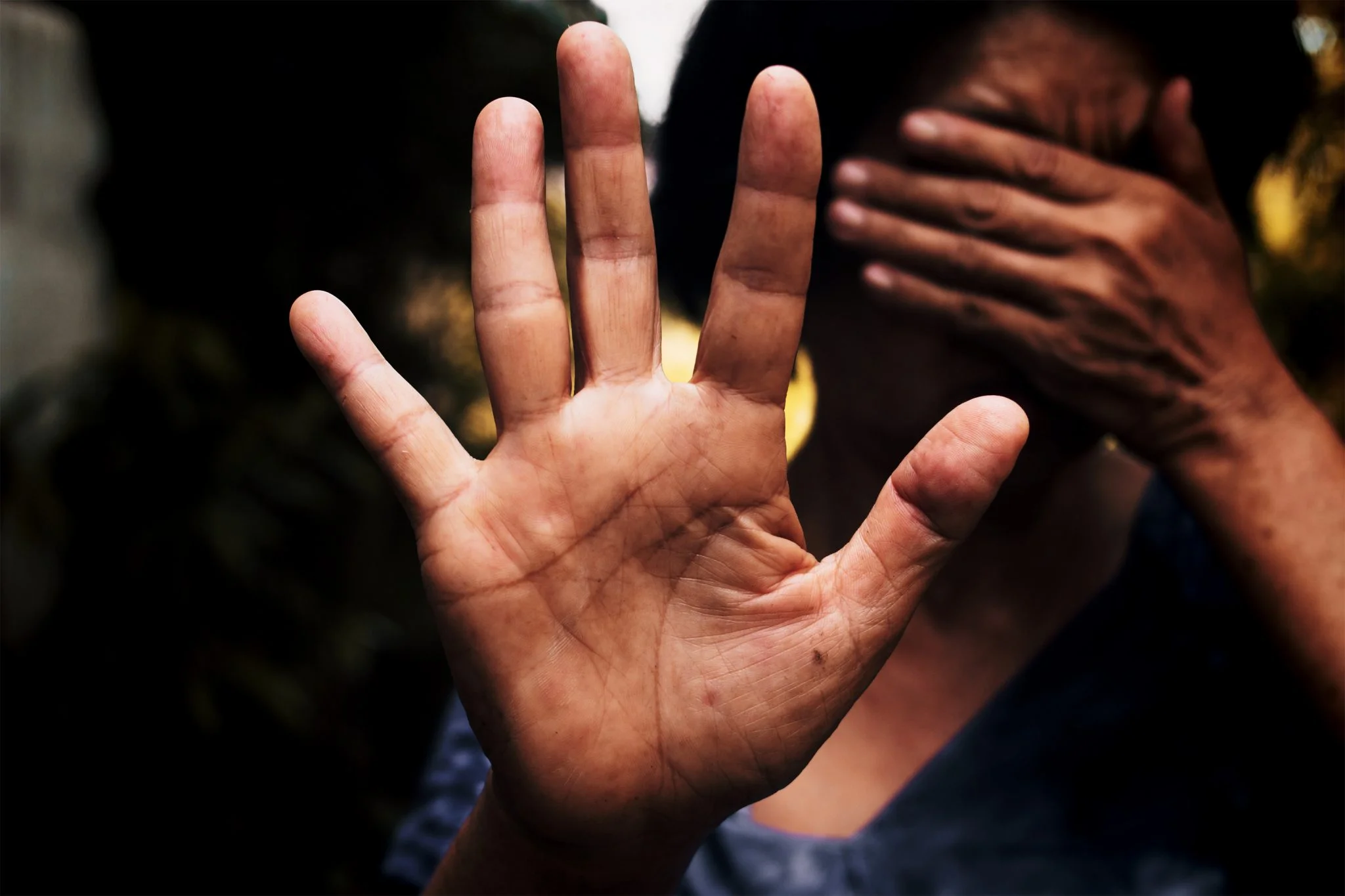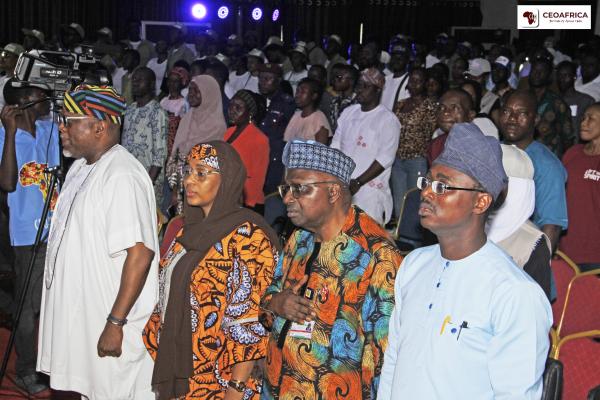
Violence against women and girls remains one of the most prevalent human rights violations in the world.
Despite the enactment of the Violent Against Persons Prohibition, VAPP, law in Nigeria, cases of Gender Based Violence, GBV, especially spousal battery and rape are increasing.
Though GBV issues affect both the men and the women in the society, the latter are the worst hit.
Statistics from the GBV Data Situation Room estimates that 35 per cent of women, with one in every three Nigerian females, experience violence at some point in their lives, mostly by an intimate partner.
Nigeria has recorded 27,698 cases of Sexual and Gender Based Violence between 2020 and 2023 as revealed by the Honourable Minister of Women Affairs, Uju Kennedy-Ohanenye.
The data has put the SDG agenda of achieving gender equality and non-violence against women in Nigeria by 2030 in doubt.
In Akwa Ibom State, the figure stood at 321 between January to November, 2023, as shown in the GBV Data from the Sexual and Gender Based Violence Response Department, Ministry of Justice, with spousal battery and rape taking the lead with 170 and 120, respectively.
Many women have gory tales of how they have been molested, degraded and dehumanized by their spouses but have chosen to bottle up their pains because of perceived societal, cultural and religious views.
Those who muster courage to voice out their plights are being pressured or cowered to withdraw their cases and seek alternative dispute resolution.
The recent case of a lawyer in Akwa Ibom State, Barr Ebong Ekere who was seen in a viral video battering his half clad wife over undisclosed reasons is one in a thousand cases where a victim after going through traumatic experiences would still choose to remain in the captivity of his tormentor for the sake of the children or the church.
Ekere after the incident, was picked up by the police for investigations and prosecution.
But, his wife, (the victim), CEOAFRICA source gathered, ran back to the police seeking to withdraw the case and save her husband from being prosecuted with the claims that she had forgiven him and that his long detention in the police had affected the children and the family as a whole.
Number 5 of the Affidavit of Withdrawal of Complaint Against Barr Ekere Ebong by the wife as sighted by CEOAFRICA source reads, “that the issues that led to the unfortunate squabble between myself and my husband was discussed and amicably resolved and I withdrew the matter from the divisional police office, Ewet Housing Estate, hence the matter rested for good.”
The affidavit added, “I had no further interest in pursuing the matter and at the same time generating the publicity and traction it has generated within the media space. I hereby unequivocally state for the umpteenth time that this matter should be rested for good in the interest of my sanity, but most especially the interest of my children who are inconsolably looking for their father since last week.
“I still stand by my earlier resolve that I am not interested in the prosecution of the matter.”
Police sources say the issue of withdrawal at the middle of investigation of battery cases was a major factor against the prosecution of such cases.
The Chairperson of the International Federation of Women Lawyers, FIDA, Uyo, Iquo Abia, while speaking, lamented that since the domestication of the VAPP Act in 2020, the state has not secured even one conviction of a suspected case of spousal battery due to victims’ withdrawal at the middle of investigations.
“The law is not a problem, the problem is the implementation of the law. We have instances when women will lodge a complaint and in the long run, they back out, some will even deny coming to you. That’s a big challenge.
“The VAPP law is comprehensive enough. The court deals with facts and evidence, a situation where a victim withdraws in the middle of a case is challenging,” she told CEOAFRICA.
However, the Director, Sexual and Gender-Based Violence Response Department, Akwa Ibom State, Barr Emem Etteh told DAILY POST in her office that Barr Ekere’s case may not be business as usual since the matter has gone beyond him and the victim (his wife).
She said it was now between the suspect and the Attorney General, adding that it would be difficult for the victim to back out following the overwhelming evidence in the public space.
Her words, “The victim cannot even back out now in light of the overwhelming evidence. The whole world is on this case.
“We used to have that challenge where some victims would incident a case but when we want to press charges they deny that any spousal battery occurred and back out. We become helpless in the absence of any evidence or witness but this case is different.
“The case is between the state and the man and it has gone beyond the woman.
“Even though the church is mounting pressure on her to withdraw the case and seek alternative dispute resolution, there is no alternative conflict resolution in criminal matters.
“What you can only do is plea bargaining which means they can convict you but instead of a ten year sentence, you go for one year, pay compensation and do restitution. The law is not there to forgive, but to punish offenders.”
Etteh, who described “justice as a three-way-traffic where the survivor, the accused and the society must be considered”, said in Barr Ekere’s alleged battery case, not just the victim but the society must also get justice.
According to her, “in this case, we consider the society too, the society must get justice because there are a lot of people that have been depressed and traumatized because of this case and the society needs to be safe.
“If something is not done, people will think that is the way, after all nothing will happen.
“So justice should be done. The law was not there to forgive but to punish to serve as a deterrent to others who had wanted to commit the same crime, they will know that the law, the institutions are working.
“If a crime is committed, the institutions must do their work, police must arrest, they must investigate, courts must prosecute and if found guilty, the correctional centres must do their work.
“Law is for reformation, law is for transformation and if we keep forgiving, we make morality overcome the law, if we allow morality and sentiment to now weaken the law, then the society will pay for it.
“Had it been that this woman died, the police would have carried every body around there because you can’t be a bystander.”
She regretted that the issue of spousal battery has transcended to the children at home, narrating how a four year old child joined the father to molest the mother and never had any regard for her.
She said, “Children in abusive homes react either positively or negatively; there are some that would be cringing, they don’t want anything to happen, while some will react negatively and join forces with one spouse to torment the other, in the case of the latter, the cycle continues even when they grow up and have their families.”
Etteh, while calling for a clampdown on spousal abusers in the state, lamented that at least two women die of spousal violence in every two days in Akwa Ibom.
She narrated how a victim was trailed and stabbed 26 times by her husband in Eket Local Government of the state and how another man beat up his wife and stabbed her which led her slide into coma for three months.
Reminiscing in a tremulous voice, Etteh noted, “this particular case left me in tears for many weeks; I was just sitting in my office, one of our clients from Eket just ran inside, a knife in her hands which she immediately dropped on my table, her face buried in the table.
“She was crying, shouting ‘Barrister Emem o’, I’m finished, it took me a while to stabilize her so as to ascertain what happened. She narrated how her husband attacked her with the knife and she was able to collect the knife from him and ran away.
“The lady had earlier reported a case of spousal battery to us, when it was too much, we advised her to separate which she did and stayed with her family.
“The man still saw her somewhere and wanted to stab her and she was able to drag the knife from the man and escaped. The next time when she was going to work from the brother’s house, the husband stabbed her 26 times and she died.
“It was very traumatic to me because it kept replaying in my subconscious how the lady entered my office and was crying before the incident.”
She continued, “there is a case we are handling now; the woman is putting her defenses in the court.
“It happened that when the woman’s husband stabbed her, we were called and immediately we got to the scene, we carried the woman to Ibom Specialist Hospital.
“While in the hospital, she was able to tell us what happened and we recorded her.
“She immediately went into a coma and she was in a coma for three good months. We had to arrest the man.
“We thank God that after three months, she came back to life. We have removed her from that abusive environment, the matter is in court and it’s a case of attempted murder.”
Why GBV cases is increasing
Etteh attributed the rise in GBV cases to easy “forgiveness of offenders” saying that such act always weaken the law and render prosecutors incapacitated
“The reason we are having an increase in the number of GBV cases is because we forgive offenders easily.
“For example, the recent case of Barr Ekere where the woman said she has forgiven. Had it been that there was no clear evidence, it would have been very difficult to prosecute the matter.”
FIDA president, Barr Abia on her part noted that most times the victims abet the crime by withdrawing the case.
She noted that until victims of spousal battery resolved to follow their matter to a logical conclusion to ensure the conviction of their molesters, GBV would continue to increase in the society.
Way Forward
Etteh advised couples to seek amicable way to settle disputes, saying, “people should ensure that before getting married, it should be someone they can be kind and patient with and if you find out that after marriage, you can no longer be kind to that person, or tolerant with that person, you can separate because the law will not sit, fold its’ arms and look at you when you go foul.
“When you go against the law, no one considers the reason you did so.
“It is also advisable for one to seek an amicable way of resolving issues; we also offer mediation services, we offer counselling.
“If I’m the one mediating, I will tell them, let me be part of your recovery or healing process. If there is anything along the way, let me know, let me be your buffer in the middle, after all, nobody will beat me. Most of them who accepted the offer are living happily now.
“Also, couples should have someone they can be accountable to, a couple they respect, that have their interest at heart, you can discuss your matter with them and they can mediate.
“We are asking people, if something happens to you, don’t think about yourself, think about the other people by voicing out.
“Report your matter; the court will decide who is the offender and know the type of punishment; it is not for you to say you have forgiven.
“It is not your fault what somebody has done to you; just report, nobody should feel guilty or be emotionally blackmailed that they did something wrong by reporting to the authorities.
“It is not your fault that the police did their investigations, it is not your fault that the court did its work. It’s not your fault that you were abused.”






















